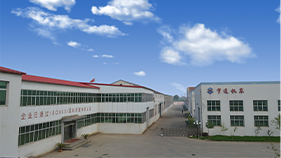ce certification types of thread rolling machine
Understanding CE Certification Types for Thread Rolling Machines
Thread rolling machines are essential tools in the manufacturing sector, used primarily to create external threads on various metal components. With an increasingly globalized market, the importance of compliance with safety standards cannot be understated. One such vital standard is the CE certification, which indicates that a product meets European Union (EU) safety, health, and environmental protection requirements.
What is CE Certification?
CE marking stands for Conformité Européenne, which translates to European Conformity. It is a declaration by the manufacturer that their product meets the relevant requirements set out by European legislation. For machinery like thread rolling machines, CE certification is crucial as it assures users that the equipment has undergone rigorous testing and meets high safety and performance standards.
Types of CE Certification for Thread Rolling Machines
There are several types of CE certifications relevant to thread rolling machines, primarily categorized based on the machine’s complexity and the level of risk associated with its operation. These include
1. Low Voltage Directive (LVD) This certification is essential for machines operating at low voltage. It ensures that electrical equipment operates safely and does not pose hazards to users.
2. Machinery Directive (MD) A significant requirement for mechanical machinery, the MD covers safety aspects for machines used in industrial environments. This certification includes risk assessments and ensuring that all safety devices are effectively integrated and functioning.
ce certification types of thread rolling machine

3. EMC Directive The Electromagnetic Compatibility (EMC) directive ensures that electrical equipment does not interfere with other devices and remains operational in the presence of electromagnetic disturbances. For thread rolling machines, this is crucial as they often operate in environments with multiple machines.
4. ROHS Directive The Restriction of Hazardous Substances (ROHS) directive is fundamental for ensuring that electrical and electronic equipment does not contain hazardous materials that could harm the environment or health.
Importance of CE Certification
Acquiring CE certification for thread rolling machines is vital for several reasons. For manufacturers, it facilitates market access in the EU by demonstrating compliance with applicable regulations. Furthermore, it enhances the credibility and reliability of the products in the eyes of customers, which can lead to increased marketability and sales.
Additionally, for operators, CE certification guarantees that the thread rolling machines are safe and that they comply with health and safety regulations. This reduces the risk of accidents and improves workplace safety, which ultimately protects employees and minimizes liability for businesses.
Conclusion
In the realm of industrial machinery, particularly thread rolling machines, CE certification is essential not only to meet legal obligations but also to ensure the safety and efficiency of operations. Understanding the different types of CE certifications and their implications can help manufacturers, operators, and clients make informed decisions, fostering a safer, more compliant work environment in the manufacturing industry.


